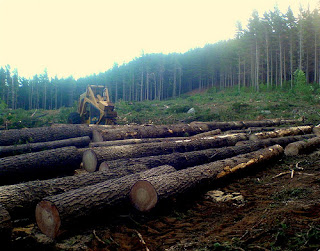“The balance between water demand and supply in SA is precarious right now,”
(Edna Molewa, Minister of Water Affairs & Environment.)
Cape Town like most other areas in South Africa is deemed a ‘water-stressed’ zone. This results from an imbalance between water usage and the amount of water resources available to a particular area. Water stress causes the deterioration of fresh water resources both in terms of the quantity and the quality. (Alcamo et Al, 1999)
Cape Town is particularly prone to water stress as each year it attracts a large number of tourists over the summer months when rainfall is at its most scarce and freshwater reserves are reputably low. Because of this, Cape Town has had to adopt a stringent water management program that ensures that the quantity and the quality of its water is maintained between the winter seasons.
However it is not merely population influxes that cause the water crisis that affects the City of Cape Town. I will examine the various components responsible for the depletion of Cape Town’s freshwater resources.
Cape Town harbours many species of alien vegetation that absorb large amounts of naturally occurring ground water, making it hard for natural plantlife (namely fynbos species) to thrive in these areas. To combat the alien vegetation and thereby encourage natural biodiversity, the City of Cape Town has an ongoing programme dedicated to the removal of alien vegetation in the catchment areas of its dams. The city’s Integrated Aquatic Weed Control Programme also aims to assist with the management of alien vegetation through the constant removal of alien aquatic weeds, which occur in river, canals, wetlands, dams and treatment ponds.
The city has set itself a goal to be completely “pine free” by December 2015 ensuring the sustainability of its ground water levels. (Neuhoff, W. ) As part of this project, two forest areas (namely Tokai forest and Cecilia forest) have been targeted and several square kilometers of forest removed. It was an expensive operation that required a great deal of manpower in order to be completed. The public’s reaction, as evident in the exert bellow, illustrates the way in which people prioritise their own personal lifestyles over that of the environment in which they live.
“All the alien pines are being chopped down and our shady forests being destroyed. It's a contentious issue. The removal thereof gives our fynbos (our indigenous, waterwise vegetation) a chance to thrive again, allowing once forgotten, rare varieties to reappear. On the other hand, summer is hot and unforgiving in Cape Town - and our forests give the locals a place and space to relax and cool off in. All said and done - where deforestation has taken place, our fynbos thrives without the pines robbing it of water. The area does look awesome. Unfortunately though, fynbos is mainly shrubs and grasses and very few trees. So our shady corners will be gone forever.”
(Watermeyer, K “Barking Up The Wrong Tree?” Feb 2010)
One of the biggest issues regarding Cape Town’s water management systems is the ability of small municipalities to keep up with an increasing demand for fresh drinking water. The city has been criticized for not charging water-users enough causing the public to adopt a perception that water is freely available and is therefore disregarded as an asset, which is not precious and does not need to be looked after.
The issue of water and sanitation in South Africa is deeply routed in economic and political policies. The people who do not have access to fresh water in this country are mostly the margenalised; geographically, economically and/or socially. According to a national census taken in 2001, 84% of South Africans had access to piped water of which, 32% ran directly into their homes. A large percent of those living without access to clean, running water where situated in the historically disadvantaged, rural areas. (Neuhoff, W. 2010)
The amount paid for water is usually a very small fraction of the household’s disposable income. However, social or political reasons may require that pricing of water for low consumers should be subsidized. To solve the issue of affordability, the government provided a life-line tariff, which essentially grants each household access to 6000 litres of free water each month.
However, The World Wildlife Fund heavily criticized this move as it believes that it is greatly responsible for a large percentage of fresh water wastage without creating capital that can be put towards water conservation schemes.
“We haven’t yet shifted the public perception about how important water is and we’re running out of sites to build dams – there’re no other rivers with excess water,” “Municipalities need the income that water generates and so we’ve built ourselves into this dependency on water. If urban water demand keeps increasing, you’ll never get to water security unless you flatten the demand curve.”
(WWF Living Lands unit head Mark Botha)
The costs of removing tastes and odours from drinking water is an expensive process and cost several million Rand per year. In order to ensure that municipalities are equipped to continue providing water that is of high quality and in quantities that will meet demands of it’s public, the city counsel needs to carefully consider it’s pricing strategy.






